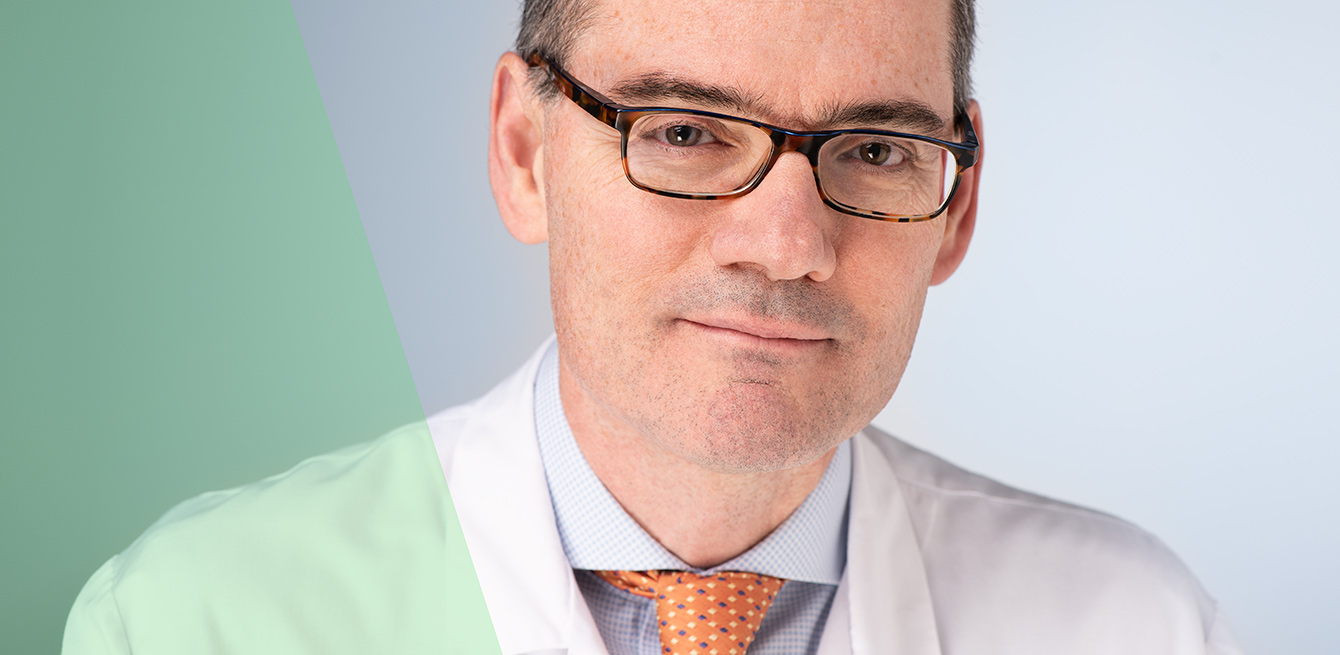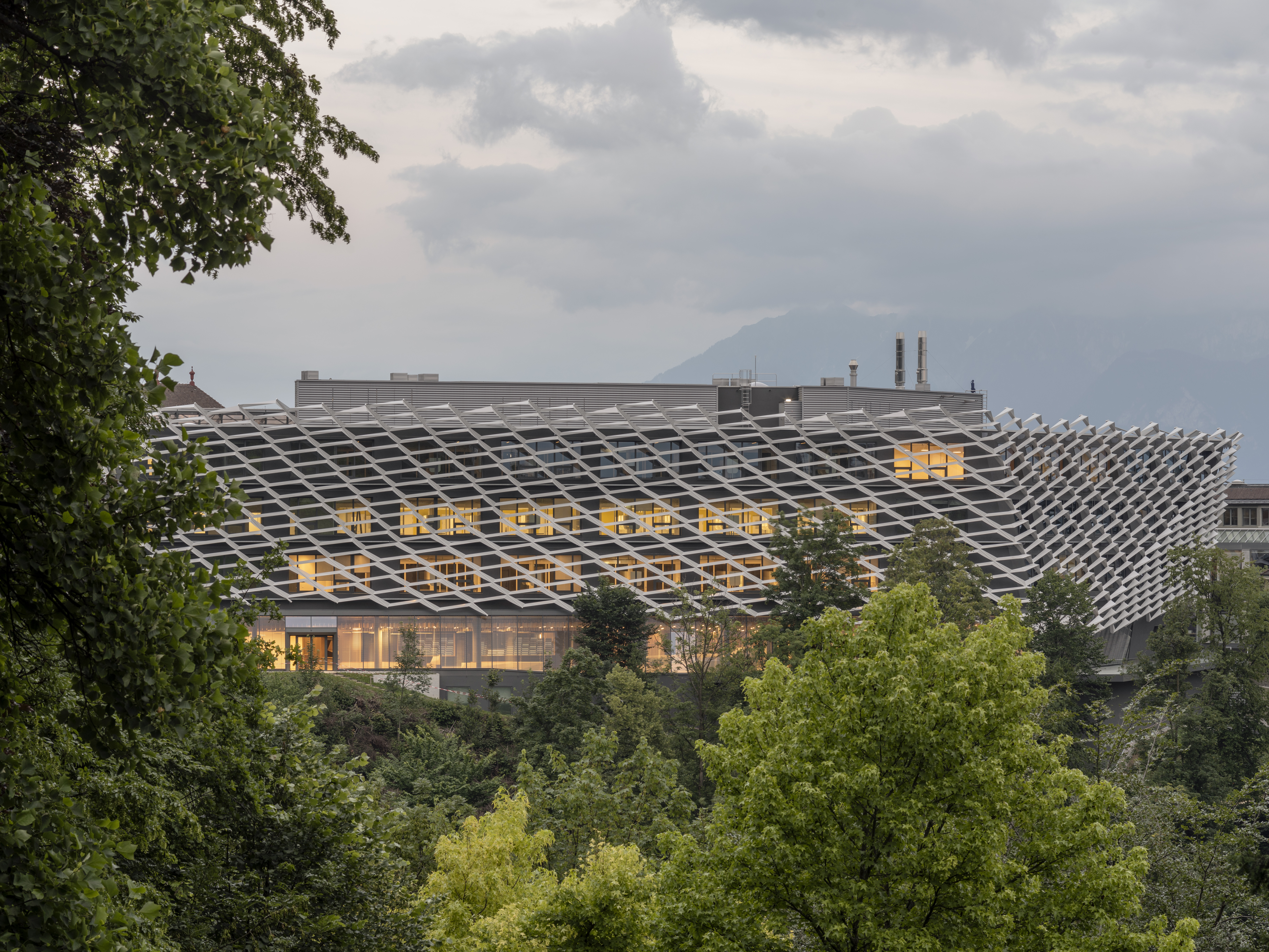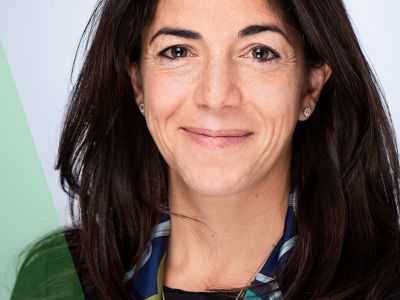
The capital of the canton of Vaud is an oncological research centre which is today recognised throughout Europe. Work on cellular immunotherapy is advancing rapidly and offers a glimpse of a historic breakthrough. This is the story of the team's work, through the eyes of George Coukos.
Thanks to its unique qualities in terms of innovation in the health sector, some call the Lake Geneva area "Health Valley", in reference to the famous Silicon Valley. This is partly why George Coukos, renowned oncologist, decided to put down roots in the fertile ground of Lausanne, the capital of the canton of Vaud.
“When I arrived, I discovered an extremely well-organised, well-resourced hospital with a real motivation for innovation. The bio-engineering and IT competences of the École polytechnique fédérale de Lausanne (EPFL) also impressed me greatly,” recalls the man who is now the Director of the UNIL CHUV Department of Oncology.
Until 2012, the professor worked at the University of Pennsylvania, where he had notably created a prestigious research centre dealing with ovarian cancer. Having lived in the USA for over 20 years, he had no reason to leave. But the lure of developing a specialist research centre in Europe persuaded him to change direction.
Since his arrival seven years ago, the “oncological scene” in Lausanne has made giant steps forward. This is particularly due to the financial support of the Ludwig Institute for Cancer Research, which has pledged to support Lausanne for a period of 30 years, even though it had initially planned to refocus its activities within the USA.
Prof. George Coukos rejoices that "today, we can say without any embarrassment that we are one of the largest cancer research centres in Europe".
And the facts bear him out in this. Work on AGORA, the new cancer research centre, started but very recently and it was inaugurated on October 3rd, 2018. It will bring together, under one roof, almost 300 researchers from EPFL, the Geneva University Hospitals, (HUG), the University of Geneva (UNIGE), the University of Lausanne (UNIL), the Ludwig Institute for Cancer Research and CHUV.
Financed by the Fondation de soutien à la recherche sur le cancer (ISREC), this centre embodies what George Coukos considers to be two strong features: “On the one hand, the desire of the public community to promote research, shown by the fact that it is the citizens who provided the funds needed to finance AGORA through ISREC, and on the other hand, the existence of a genuine culture of cooperation in Switzerland, which allows fast and effective progress. In the USA, prestigious centres work side by side, but in competition rather than together.”

The Agora building is organised into several interconnected zones in which the following topics have priority dedicated to the following domains of research: melanoma, glioblastoma (the deadliest form of cervical cancer), cancers of the lung, breast, pancreas and prostate, invasion and metastasization (the study of the migration of malignant cells) and angiogenesis (a pathological process in tumour growth and the development of metastases).
Clinical practice does not sit idle, and specialists now have several strong weapons to combat or even eradicate cancers. From FLASH radiotherapy to cellular immunotherapy, several clinical trials are underway and are already producing promising results. “Everything is accelerating and we will soon be able to reap the benefits of the results of these years of research,” enthuses the Professor, who says he is particularly proud of the clinical immunotherapy trial targeted at metastatic melanoma.
"This project belongs 100% to Lausanne. The research, the treatments, the trials: everything is done here!"
Do you want to know more about this promising trial? Through our Immersion series, we intend to take you behind the scenes at CHUV and, by following a patient’s journey, discover how cell therapy may perhaps revolutionise the treatment of cancer in years to come. /
A graduate in medicine from the University of Modena and Reggio Emilia and later the University of Pennsylvania, George Coukos has contributed to many significant scientific discoveries in the field of immunotherapy and cell therapies, including the first individualised vaccine for women with ovarian cancer. His research focuses on both this disease and the tumour micro-environment. Named as the Science Personality of the Year in 2018 by the editorial staff of the journal Bilan Luxe/Finanz und Wirtschaft, he is head of the UNIL-CHUV Department of Oncology and Director of the Lausanne branch of the Ludwig Institute for Cancer Research.
/
The area in m2 of the Agora building, designed by the architects Behnisch Architekten and financed by the ISREC Foundation.
/
The number of doctors, researchers and bio-engineers working together in Agora, from six partner institutions: the University of Lausanne (UNIL), University of Geneva (UNIGE), École polytechnique fédérale de Lausanne (EPFL), CHUV, the Geneva University Hospitals (HUG) and the Ludwig Institute.

Whilst approximately 100 research protocols against cancer are currently open at CHUV, all coordinated within the Experimental Therapies Centre, Lana Kandalaft walks us through the challenges of setting up a clinical trial: the intricate path from the laboratory to the patient's bedside.